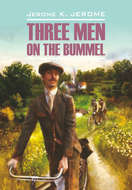Kitobni o'qish: «Pollyanna Crows up / Поллианна вырастает. Книга для чтения на английском языке»
To My Cousin Walter
Комментарии и словарь Е. Г. Тигонен
© КАРО, 2016
Chapter I
Della Speaks Her Mind
Della Wetherby tripped up the somewhat imposing steps of her sister’s Commonwealth Avenue home and pressed an energetic finger against the electric-bell button. From the tip of her wing-trimmed hat to the toe of her low-heeled shoe she radiated health, capability, and alert decision. Even her voice, as she greeted the maid that opened the door, vibrated with the joy of living.
“Good morning, Mary. Is my sister in?”
“Y-yes, ma’am, Mrs. Carew is in,” hesitated the girl; “but – she gave orders she’d see no one.”
“Did she? Well, I’m no one1,” smiled Miss Wetherby, “so she’ll see me. Don’t worry – I’ll take the blame,” she nodded, in answer to the frightened remonstrance in the girl’s eyes. “Where is she – in her sitting-room?”
“Y-yes, ma’am; but – that is, she said —” Miss Wetherby, however, was already halfway up the broad stairway; and, with a despairing backward glance, the maid turned away.
In the hall above Della Wetherby unhesitatingly walked toward a half-open door, and knocked.
“Well, Mary,” answered a “dear-me-what-now2” voice. “Haven’t I – Oh, Della!” The voice grew suddenly warm with love and surprise. “You dear girl, where did you come from?”
“Yes, it’s Della,” smiled that young woman, blithely, already halfway across the room. “I’ve come from an over-Sunday at the beach with two of the other nurses, and I’m on my way back to the Sanatorium now. That is, I’m here now, but I sha’n’t be long. I stepped in for – this,” she finished, giving the owner of the “dear-me-what-now” voice a hearty kiss.
Mrs. Carew frowned and drew back a little coldly. The slight touch of joy and animation that had come into her face fled, leaving only a dispirited fretfulness that was plainly very much at home there.
“Oh, of course! I might have known,” she said. “You never stay – here.”
“Here!” Della Wetherby laughed merrily, and threw up her hands; then, abruptly, her voice and manner changed. She regarded her sister with grave, tender eyes. “Ruth, dear, I couldn’t – I just couldn’t live in this house. You know I couldn’t,” she finished gently.
Mrs. Carew stirred irritably.
“I’m sure I don’t see why not,” she fenced.
Della Wetherby shook her head.
“Yes, you do, dear. You know I’m entirely out of sympathy with it all: the gloom, the lack of aim, the insistence on misery and bitterness.”
“But I AM miserable and bitter.”
“You ought not to be.”
“Why not? What have I to make me otherwise?”
Della Wetherby gave an impatient gesture.
“Ruth, look here,” she challenged. “You’re thirty-three years old. You have good health – or would have, if you treated yourself properly – and you certainly have an abundance of time and a superabundance of money. Surely anybody would say you ought to find SOMETHING to do this glorious morning besides sitting moped up in this tomb-like house with instructions to the maid that you’ll see no one.”
“But I don’t WANT to see anybody.”
“Then I’d MAKE myself want to.”
Mrs. Carew sighed wearily and turned away her head.
“Oh, Della, why won’t you ever understand? I’m not like you. I can’t – forget.”
A swift pain crossed the younger woman’s face.
“You mean – Jamie, I suppose. I don’t forget – that, dear. I couldn’t, of course. But moping won’t help us – find him.”
“As if I hadn’t TRIED to find him, for eight long years – and by something besides moping,” flashed Mrs. Carew, indignantly, with a sob in her voice.
“Of course you have, dear,” soothed the other, quickly; “and we shall keep on hunting, both of us, till we do find him – or die. But THIS sort of thing doesn’t help.”
“But I don’t want to do – anything else,” murmured Ruth Carew, drearily.
For a moment there was silence. The younger woman sat regarding her sister with troubled, disapproving eyes.
“Ruth,” she said, at last, with a touch of exasperation, “forgive me, but – are you always going to be like this? You’re widowed, I’ll admit; but your married life lasted only a year, and your husband was much older than yourself. You were little more than a child at the time, and that one short year can’t seem much more than a dream now. Surely that ought not to embitter your whole life!”
“No, oh, no,” murmured Mrs. Carew, still drearily.
“Then ARE you going to be always like this?”
“Well, of course, if I could find Jamie —”
“Yes, yes, I know; but, Ruth, dear, isn’t there anything in the world but Jamie – to make you ANY happy3?”
“There doesn’t seem to be, that I can think of,” sighed Mrs. Carew, indifferently.
“Ruth!” ejaculated her sister, stung into something very like anger. Then suddenly she laughed. “Oh, Ruth, Ruth, I’d like to give you a dose of Pollyanna. I don’t know any one who needs it more!”
Mrs. Carew stiffened a little.
“Well, what pollyanna may be I don’t know, but whatever it is, I don’t want it,” she retorted sharply, nettled in her turn. “This isn’t your beloved Sanatorium, and I’m not your patient to be dosed and bossed, please remember.”
Della Wetherby’s eyes danced, but her lips remained unsmiling.
“Pollyanna isn’t a medicine, my dear,” she said demurely, “– though I have heard some people call her a tonic. Pollyanna is a little girl.”
“A child? Well, how should I know,” retorted the other, still aggrievedly. “You have your ‘belladonna,’ so I’m sure I don’t see why not ‘pollyanna.’ Besides, you’re always recommending something for me to take, and you distinctly said ‘dose’ – and dose usually means medicine, of a sort4.”
“Well, Pollyanna IS a medicine – of a sort,” smiled Della. “Anyway, the Sanatorium doctors all declare that she’s better than any medicine they can give. She’s a little girl, Ruth, twelve or thirteen years old, who was at the Sanatorium all last summer and most of the winter. I didn’t see her but a month or two, for she left soon after I arrived. But that was long enough for me to come fully under her spell. Besides, the whole Sanatorium is still talking Pollyanna, and playing her game.”
“GAME!”
“Yes,” nodded Della, with a curious smile. “Her ‘glad game.’ I’ll never forget my first introduction to it. One feature of her treatment was particularly disagreeable and even painful. It came every Tuesday morning, and very soon after my arrival it fell to my lot to give it to her. I was dreading it, for I knew from past experience with other children what to expect: fretfulness and tears, if nothing worse. To my unbounded amazement she greeted me with a smile and said she was glad to see me; and, if you’ll believe it, there was never so much as a whimper from her lips through the whole ordeal, though I knew I was hurting her cruelly.
“I fancy I must have said something that showed my surprise, for she explained earnestly: ‘Oh, yes, I used to feel that way, too, and I did dread it so, till I happened to think ’twas just like Nancy’s wash-days, and I could be gladdest of all on TUESDAYS, ’cause there wouldn’t be another one for a whole week.’”
“Why, how extraordinary!” frowned Mrs. Carew, not quite comprehending. “But, I’m sure I don’t see any GAME to that.”
“No, I didn’t, till later. Then she told me. It seems she was the motherless daughter of a poor minister in the West, and was brought up by the Ladies’ Aid Society and missionary barrels. When she was a tiny girl she wanted a doll, and confidently expected it in the next barrel; but there turned out to be nothing but a pair of little crutches.
“The child cried, of course, and it was then that her father taught her the game of hunting for something to be glad about, in everything that happened; and he said she could begin right then by being glad she didn’t NEED the crutches. That was the beginning. Pollyanna said it was a lovely game, and she’d been playing it ever since; and that the harder it was to find the glad part5, the more fun it was, only when it was too AWFUL hard, like she had found it sometimes.”
“Why, how extraordinary!” murmured Mrs. Carew, still not entirely comprehending.
“You’d think so – if you could see the results of that game in the Sanatorium,” nodded Della; “and Dr. Ames says he hears she’s revolutionized the whole town where she came from, just the same way. He knows Dr. Chilton very well – the man that married Pollyanna’s aunt. And, by the way, I believe that marriage was one of her ministrations. She patched up an old lovers’ quarrel between them.
“You see, two years ago, or more, Pollyanna’s father died, and the little girl was sent East to this aunt. In October she was hurt by an automobile, and was told she could never walk again. In April Dr. Chilton sent her to the Sanatorium, and she was there till last March – almost a year. She went home practically cured. You should have seen the child! There was just one cloud to mar her happiness: that she couldn’t WALK all the way there. As near as I can gather, the whole town turned out to meet her with brass bands and banners.
“But you can’t TELL about Pollyanna. One has to SEE her. And that’s why I say I wish you could have a dose of Pollyanna. It would do you a world of good.”
Mrs. Carew lifted her chin a little.
“Really, indeed, I must say I beg to differ with you6,” she returned coldly. “I don’t care to be ‘revolutionized,’ and I have no lovers’ quarrel to be patched up; and if there is ANYTHING that would be insufferable to me, it would be a little Miss Prim with a long face preaching to me how much I had to be thankful for. I never could bear —” But a ringing laugh interrupted her.
“Oh, Ruth, Ruth,” choked her sister, gleefully. “Miss Prim, indeed – POLLYANNA! Oh, oh, if only you could see that child now! But there, I might have known. I SAID one couldn’t TELL about Pollyanna. And of course you won’t be apt to see her. But – Miss Prim, indeed!” And off she went into another gale of laughter. Almost at once, however, she sobered and gazed at her sister with the old troubled look in her eyes.
“Seriously, dear, can’t anything be done?” she pleaded. “You ought not to waste your life like this. Won’t you try to get out a little more, and – meet people?”
“Why should I, when I don’t want to? I’m tired of – people. You know society always bored me.”
“Then why not try some sort of work – charity?”
Mrs. Carew gave an impatient gesture.
“Della, dear, we’ve been all over this before. I do give money – lots of it, and that’s enough. In fact, I’m not sure but it’s too much. I don’t believe in pauperizing people.”
“But if you’d give a little of yourself, dear,” ventured Della, gently. “If you could only get interested in something outside of your own life, it would help so much; and —”
“Now, Della, dear,” interrupted the elder sister, restively, “I love you, and I love to have you come here; but I simply cannot endure being preached to7. It’s all very well for you to turn yourself into an angel of mercy and give cups of cold water, and bandage up broken heads, and all that. Perhaps YOU can forget Jamie that way; but I couldn’t. It would only make me think of him all the more, wondering if HE had any one to give him water and bandage up his head. Besides, the whole thing would be very distasteful to me – mixing with all sorts and kinds of people like that.”
“Did you ever try it?”
“Why, no, of course not!” Mrs. Carew’s voice was scornfully indignant.
“Then how can you know – till you do try?” asked the young nurse, rising to her feet a little wearily. “But I must go, dear. I’m to meet the girls at the South Station. Our train goes at twelve-thirty. I’m sorry if I’ve made you cross with me,” she finished, as she kissed her sister good-by.
“I’m not cross with you, Della,” sighed Mrs. Carew; “but if you only would understand!”
One minute later Della Wetherby made her way through the silent, gloomy halls, and out to the street. Face, step, and manner were very different from what they had been when she tripped up the steps less than half an hour before. All the alertness, the springiness, the joy of living were gone. For half a block she listlessly dragged one foot after the other. Then, suddenly, she threw back her head and drew a long breath.
“One week in that house would kill me,” she shuddered. “I don’t believe even Pollyanna herself could so much as make a dent in the gloom! And the only thing she could be glad for there would be that she didn’t have to stay.”
That this avowed disbelief in Pollyanna’s ability to bring about a change for the better in Mrs. Carew’s home was not Della Wetherby’s real opinion, however, was quickly proved; for no sooner had the nurse reached the Sanatorium than she learned something that sent her flying back over the fifty-mile journey to Boston the very next day.
So exactly as before did she find circumstances at her sister’s home that it seemed almost as if Mrs. Carew had not moved since she left her.
“Ruth,” she burst out eagerly, after answering her sister’s surprised greeting, “I just HAD to come, and you must, this once, yield to me and let me have my way8. Listen! You can have that little Pollyanna here, I think, if you will.”
“But I won’t,” returned Mrs. Carew, with chilly promptness.
Della Wetherby did not seem to have heard. She plunged on excitedly.
“When I got back yesterday I found that Dr. Ames had had a letter from Dr. Chilton, the one who married Pollyanna’s aunt, you know. Well, it seems in it he said he was going to Germany for the winter for a special course, and was going to take his wife with him, if he could persuade her that Pollyanna would be all right in some boarding school here meantime. But Mrs. Chilton didn’t want to leave Pollyanna in just a school, and so he was afraid she wouldn’t go. And now, Ruth, there’s our chance. I want YOU to take Pollyanna this winter, and let her go to some school around here.”
“What an absurd idea, Della! As if I wanted a child here to bother with!”
“She won’t bother a bit. She must be nearly or quite thirteen by this time, and she’s the most capable little thing you ever saw.”
“I don’t like ‘capable’ children,” retorted Mrs. Carew perversely – but she laughed; and because she did laugh, her sister took sudden courage and redoubled her efforts.
Perhaps it was the suddenness of the appeal, or the novelty of it. Perhaps it was because the story of Pollyanna had somehow touched Ruth Carew’s heart. Perhaps it was only her unwillingness to refuse her sister’s impassioned plea. Whatever it was that finally turned the scale9, when Della Wetherby took her hurried leave half an hour later, she carried with her Ruth Carew’s promise to receive Pollyanna into her home.
“But just remember,” Mrs. Carew warned her at parting, “just remember that the minute that child begins to preach to me and to tell me to count my mercies, back she goes to you, and you may do what you please with her. I sha’n’t keep her!”
“I’ll remember – but I’m not worrying any,” nodded the younger woman, in farewell. To herself she whispered, as she hurried away from the house: “Half my job is done. Now for the other half – to get Pollyanna to come. But she’s just got to come. I’ll write that letter so they can’t help letting her come!”
Chapter II
Some Old Friends
In Beldingsville that August day, Mrs. Chilton waited until Pollyanna had gone to bed before she spoke to her husband about the letter that had come in the morning mail. For that matter, she would have had to wait, anyway, for crowded office hours, and the doctor’s two long drives over the hills had left no time for domestic conferences.
It was about half-past nine, indeed, when the doctor entered his wife’s sitting-room. His tired face lighted at sight of her, but at once a perplexed questioning came to his eyes.
“Why, Polly, dear, what is it?” he asked concernedly.
His wife gave a rueful laugh.
“Well, it’s a letter – though I didn’t mean you should find out by just looking at me.”
“Then you mustn’t look so I can,” he smiled. “But what is it?”
Mrs. Chilton hesitated, pursed her lips, then picked up a letter near her.
“I’ll read it to you,” she said. “It’s from a Miss Della Wetherby at Dr. Ames’ Sanatorium.”
“All right. Fire away,” directed the man, throwing himself at full length on to the couch near his wife’s chair.
But his wife did not at once “fire away.” She got up first and covered her husband’s recumbent figure with a gray worsted afghan. Mrs. Chilton’s wedding day was but a year behind her. She was forty-two now. It seemed sometimes as if into that one short year of wifehood she had tried to crowd all the loving service and “babying” that had been accumulating through twenty years of lovelessness and loneliness. Nor did the doctor – who had been forty-five on his wedding day, and who could remember nothing but loneliness and lovelessness – on his part object in the least to this concentrated “tending.” He acted, indeed, as if he quite enjoyed it – though he was careful not to show it too ardently: he had discovered that Mrs. Polly had for so long been Miss Polly that she was inclined to retreat in a panic and dub her ministrations “silly,” if they were received with too much notice and eagerness. So he contented himself now with a mere pat of her hand as she gave the afghan a final smooth, and settled herself to read the letter aloud.
“My dear Mrs. Chilton,” Della Wetherby had written. “Just six times I have commenced a letter to you, and torn it up; so now I have decided not to ‘commence’ at all, but just to tell you what I want at once. I want Pollyanna. May I have her?
“I met you and your husband last March when you came on to take Pollyanna home, but I presume you don’t remember me. I am asking Dr. Ames (who does know me very well) to write your husband, so that you may (I hope) not fear to trust your dear little niece to us.
“I understand that you would go to Germany with your husband but for leaving Pollyanna; and so I am making so bold as to ask you to let us take her. Indeed, I am begging you to let us have her, dear Mrs. Chilton. And now let me tell you why.
“My sister, Mrs. Carew, is a lonely, broken-hearted, discontented, unhappy woman. She lives in a world of gloom, into which no sunshine penetrates. Now I believe that if anything on earth can bring the sunshine into her life, it is your niece, Pollyanna. Won’t you let her try? I wish I could tell you what she has done for the Sanatorium here, but nobody could TELL. You would have to see it. I long ago discovered that you can’t TELL about Pollyanna. The minute you try to, she sounds priggish and preachy, and – impossible. Yet you and I know she is anything but that. You just have to bring Pollyanna on to the scene and let her speak for herself. And so I want to take her to my sister – and let her speak for herself. She would attend school, of course, but meanwhile I truly believe she would be healing the wound in my sister’s heart.
“I don’t know how to end this letter. I believe it’s harder than it was to begin it. I’m afraid I don’t want to end it at all. I just want to keep talking and talking, for fear, if I stop, it’ll give you a chance to say no. And so, if you ARE tempted to say that dreadful word, won’t you please consider that – that I’m still talking, and telling you how much we want and need Pollyanna.
“Hopefully yours,
“DELLA WETHERBY.”
“There!” ejaculated Mrs. Chilton, as she laid the letter down. “Did you ever read such a remarkable letter, or hear of a more preposterous, absurd request?”
“Well, I’m not so sure,” smiled the doctor. “I don’t think it’s absurd to want Pollyanna.”
“But – but the way she puts it – healing the wound in her sister’s heart, and all that. One would think the child was some sort of – of medicine!”
The doctor laughed outright, and raised his eyebrows.
“Well, I’m not so sure but she is, Polly. I ALWAYS said I wished I could prescribe her and buy her as I would a box of pills; and Charlie Ames says they always made it a point at the Sanatorium to give their patients a dose of Pollyanna as soon as possible after their arrival, during the whole year she was there.”
“‘Dose,’ indeed!” scorned Mrs. Chilton.
“Then – you don’t think you’ll let her go?”
“Go? Why, of course not! Do you think I’d let that child go to perfect strangers like that? – and such strangers! Why, Thomas, I should expect that that nurse would have her all bottled and labeled with full directions on the outside how to take her, by the time I’d got back from Germany.”
Again the doctor threw back his head and laughed heartily, but only for a moment. His face changed perceptibly as he reached into his pocket for a letter.
“I heard from Dr. Ames myself, this morning,” he said, with an odd something in his voice that brought a puzzled frown to his wife’s brow. “Suppose I read you my letter now.”
“Dear Tom,” he began. “Miss Della Wetherby has asked me to give her and her sister a ‘character,’ which I am very glad to do. I have known the Wetherby girls from babyhood. They come from a fine old family, and are thoroughbred gentlewomen. You need not fear on that score.
“There were three sisters, Doris, Ruth, and Della. Doris married a man named John Kent, much against the family’s wishes. Kent came from good stock10, but was not much himself, I guess, and was certainly a very eccentric, disagreeable man to deal with. He was bitterly angry at the Wetherbys’ attitude toward him, and there was little communication between the families until the baby came. The Wetherbys worshiped the little boy, James – ‘Jamie,’ as they called him. Doris, the mother, died when the boy was four years old, and the Wetherbys were making every effort to get the father to give the child entirely up to them, when suddenly Kent disappeared, taking the boy with him. He has never been heard from since11, though a world-wide search has been made.
“The loss practically killed old Mr. and Mrs. Wetherby. They both died soon after. Ruth was already married and widowed. Her husband was a man named Carew, very wealthy, and much older than herself. He lived but a year or so after marriage, and left her with a young son who also died within a year.
“From the time little Jamie disappeared, Ruth and Della seemed to have but one object in life, and that was to find him. They have spent money like water12, and have all but moved heaven and earth; but without avail. In time Della took up nursing. She is doing splendid work, and has become the cheerful, efficient, sane woman that she was meant to be – though still never forgetting her lost nephew, and never leaving unfollowed any possible clew that might lead to his discovery.
“But with Mrs. Carew it is quite different. After losing her own boy, she seemed to concentrate all her thwarted mother-love on her sister’s son. As you can imagine, she was frantic when he disappeared. That was eight years ago – for her, eight long years of misery, gloom, and bitterness. Everything that money can buy, of course, is at her command; but nothing pleases her, nothing interests her. Della feels that the time has come when she must be gotten out of herself, at all hazards; and Della believes that your wife’s sunny little niece, Pollyanna, possesses the magic key that will unlock the door to a new existence for her. Such being the case13, I hope you will see your way clear to granting her request. And may I add that I, too, personally, would appreciate the favor; for Ruth Carew and her sister are very old, dear friends of my wife and myself; and what touches them touches us.
As ever yours,
CHARLIE.”
The letter finished, there was a long silence, so long a silence that the doctor uttered a quiet, “Well, Polly?”
Still there was silence. The doctor, watching his wife’s face closely, saw that the usually firm lips and chin were trembling. He waited then quietly until his wife spoke.
“How soon – do you think – they’ll expect her?” she asked at last.
In spite of himself Dr. Chilton gave a slight start.
“You – mean – that you WILL let her go?” he cried.
His wife turned indignantly.
“Why, Thomas Chilton, what a question! Do you suppose, after a letter like that, I could do anything BUT let her go? Besides, didn’t Dr. Ames HIMSELF ask us to? Do you think, after what that man has done for Pollyanna, that I’d refuse him ANYTHING – no matter what it was?”
“Dear, dear! I hope, now, that the doctor won’t take it into his head to ask for – for YOU, my love,” murmured the husband-of-a-year, with a whimsical smile. But his wife only gave him a deservedly scornful glance, and said:
“You may write Dr. Ames that we’ll send Pollyanna; and ask him to tell Miss Wetherby to give us full instructions. It must be sometime before the tenth of next month, of course, for you sail then; and I want to see the child properly established myself before I leave, naturally.”
“When will you tell Pollyanna?”
“To-morrow, probably.”
“What will you tell her?”
“I don’t know – exactly; but not any more than I can’t help, certainly. Whatever happens, Thomas, we don’t want to spoil Pollyanna; and no child could help being spoiled if she once got it into her head that she was a sort of – of —”
“Of medicine bottle with a label of full instructions for taking?” interpolated the doctor, with a smile.
“Yes,” sighed Mrs. Chilton. “It’s her unconsciousness that saves the whole thing14. YOU know that, dear.”
“Yes, I know,” nodded the man.
“She knows, of course, that you and I, and half the town are playing the game with her, and that we – we are wonderfully happier because we ARE playing it.” Mrs. Chilton’s voice shook a little, then went on more steadily. “But if, consciously, she should begin to be anything but her own natural, sunny, happy little self, playing the game that her father taught her, she would be – just what that nurse said she sounded like – ‘impossible.’ So, whatever I tell her, I sha’n’t tell her that she’s going down to Mrs. Carew’s to cheer her up,” concluded Mrs. Chilton, rising to her feet with decision, and putting away her work.
“Which is where I think you’re wise,” approved the doctor.
Pollyanna was told the next day; and this was the manner of it.
“My dear,” began her aunt, when the two were alone together that morning, “how would you like to spend next winter in Boston?”
“With you?”
“No; I have decided to go with your uncle to Germany. But Mrs. Carew, a dear friend of Dr. Ames, has asked you to come and stay with her for the winter, and I think I shall let you go.”
Pollyanna’s face fell.
“But in Boston I won’t have Jimmy, or Mr. Pendleton, or Mrs. Snow, or anybody that I know, Aunt Polly.”
“No, dear; but you didn’t have them when you came here – till you found them.”
Pollyanna gave a sudden smile.
“Why, Aunt Polly, so I didn’t! And that means that down to Boston there are some Jimmys and Mr. Pendletons and Mrs. Snows waiting for me that I don’t know, doesn’t it?”
“Yes, dear.”
“Then I can be glad of that. I believe now, Aunt Polly, you know how to play the game better than I do. I never thought of the folks down there waiting for me to know them. And there’s such a lot of ’em, too! I saw some of them when I was there two years ago with Mrs. Gray. We were there two whole hours, you know, on my way here from out West.
“There was a man in the station – a perfectly lovely man who told me where to get a drink of water. Do you suppose he’s there now? I’d like to know him. And there was a nice lady with a little girl. They live in Boston. They said they did. The little girl’s name was Susie Smith. Perhaps I could get to know them. Do you suppose I could? And there was a boy, and another lady with a baby – only they lived in Honolulu, so probably I couldn’t find them there now. But there’d be Mrs. Carew, anyway. Who is Mrs. Carew, Aunt Polly? Is she a relation?”
“Dear me, Pollyanna!” exclaimed Mrs. Chilton, half-laughingly, half-despairingly. “How do you expect anybody to keep up with your tongue, much less your thoughts15, when they skip to Honolulu and back again in two seconds! No, Mrs. Carew isn’t any relation to us. She’s Miss Della Wetherby’s sister. Do you remember Miss Wetherby at the Sanatorium?”
Pollyanna clapped her hands.
“HER sister? Miss Wetherby’s sister? Oh, then she’ll be lovely, I know. Miss Wetherby was. I loved Miss Wetherby. She had little smile-wrinkles all around her eyes and mouth, and she knew the NICEST stories. I only had her two months, though, because she only got there a little while before I came away. At first I was sorry that I hadn’t had her ALL the time, but afterwards I was glad; for you see if I HAD had her all the time, it would have been harder to say good-by than ’twas when I’d only had her a little while. And now it’ll seem as if I had her again, ’cause I’m going to have her sister.”
Mrs. Chilton drew in her breath and bit her lip.
“But, Pollyanna, dear, you must not expect that they’ll be quite alike,” she ventured.
“Why, they’re SISTERS, Aunt Polly,” argued the little girl, her eyes widening; “and I thought sisters were always alike. We had two sets of ’em in the Ladies’ Aiders. One set was twins, and THEY were so alike you couldn’t tell which was Mrs. Peck and which was Mrs. Jones, until a wart grew on Mrs. Jones’s nose, then of course we could, because we looked for the wart the first thing. And that’s what I told her one day when she was complaining that people called her Mrs. Peck, and I said if they’d only look for the wart as I did, they’d know right off. But she acted real cross – I mean displeased, and I’m afraid she didn’t like it – though I don’t see why; for I should have thought she’d been glad there was something they could be told apart by, ’specially as she was the president, and didn’t like it when folks didn’t ACT as if she was the president – best seats and introductions and special attentions at church suppers, you know. But she didn’t, and afterwards I heard Mrs. White tell Mrs. Rawson that Mrs. Jones had done everything she could think of to get rid of that wart, even to trying to put salt on a bird’s tail. But I don’t see how THAT could do any good. Aunt Polly, DOES putting salt on a bird’s tail help the warts on people’s noses?”
I’m no one – (зд.) я не никто
[Закрыть]
dear-me-what-now – (зд.) «господи, ну кто там еще пришел»
[Закрыть]
to make you ANY happy – (разг.) что сделало бы вас хоть немного счастливее
[Закрыть]
of a sort – (разг.) в каком-то смысле
[Закрыть]
harder it was to find the glad part – (разг.) чем труднее было найти повод для радости
[Закрыть]
I beg to differ with you – (уст.) я с вами не согласна
[Закрыть]
cannot endure being preached to – (разг.) не выношу, когда меня поучают
[Закрыть]
have my way – (разг.) настоять на своем
[Закрыть]
turned the scale – (разг.) решило исход дела
[Закрыть]
came from good stock – (разг.) из хорошей семьи
[Закрыть]
He has never been heard from since – (разг.) С тех пор о нем ничего не известно
[Закрыть]
have spent money like water – (разг.) сорили деньгами
[Закрыть]
Such being the case – (уст.) Поскольку дело обстоит именно так
[Закрыть]
saves the whole thing – (разг.) спасает положение
[Закрыть]
much less your thoughts – (разг.) а уж тем более за твоими мыслями
[Закрыть]








